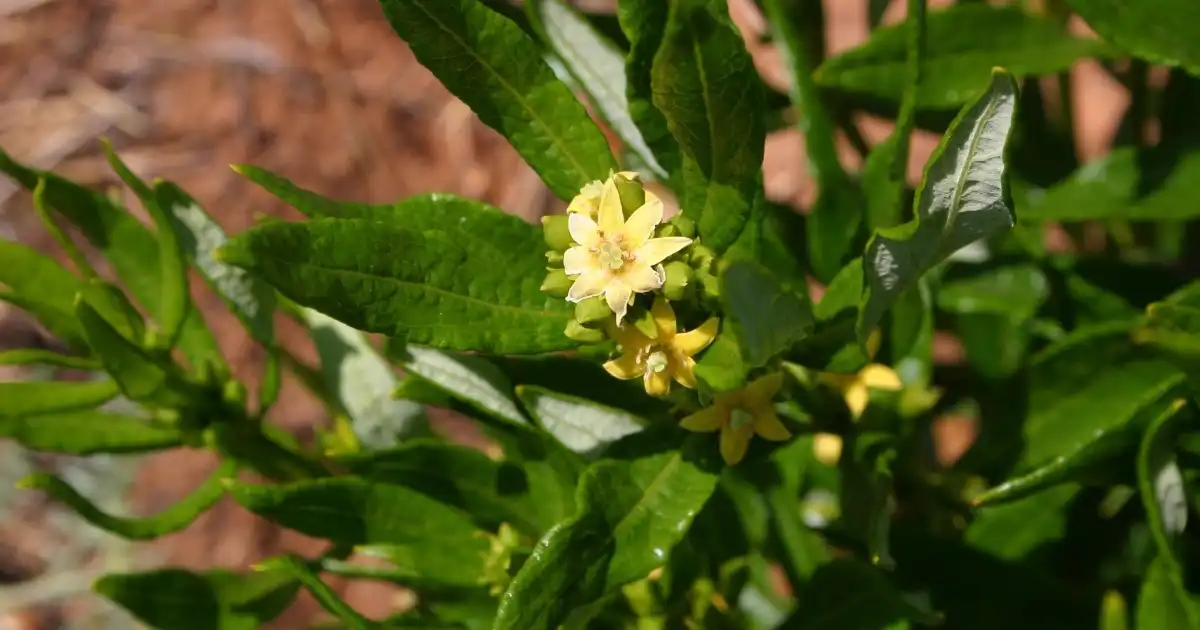Fadogia agrestis is a plant native to Africa that has been used for centuries in traditional medicine for its purported health benefits.
It is a member of the Rubiaceae family and is commonly known as “Bakinga” or “Black aphrodisiac” due to its traditional use as a sexual stimulant.
In recent years, fadogia agrestis has gained popularity as a dietary supplement among athletes and bodybuilders for its potential ability to boost testosterone levels and enhance athletic performance.
In this article, we will take a closer look at the scientific evidence behind the benefits and risks of fadogia agrestis.
Table of Contents
Chemical Composition
Fadogia agrestis contains a variety of chemical compounds, including alkaloids, saponins, flavonoids, and triterpenes. Some of the most studied alkaloids found in fadogia agrestis include:
- Harmane – A psychoactive compound found in many plants, including fadogia agrestis. It has been shown to have antioxidant and anti-inflammatory properties.
- Yohimbine – A compound commonly found in the bark of the yohimbe tree, which has been used traditionally as an aphrodisiac. It has been shown to increase blood flow and may have a positive effect on sexual function.
- Alstonine – A compound found in many plants, which has been shown to have antihypertensive and anti-inflammatory properties.
Potential Uses
- Testosterone Boosting – Fadogia agrestis has been shown in some animal studies to increase testosterone levels. In a study published in the Journal of Ethnopharmacology, rats given to extract had a significant increase in serum testosterone levels compared to the control group. However, further studies are needed to confirm these findings in humans.
- Athletic Performance Enhancement – It has been suggested to enhance athletic performance by boosting testosterone levels. Testosterone plays an important role in building muscle mass and strength, and some studies suggest that it could help increase muscle growth and improve exercise performance. However, more research is needed to confirm these findings and to determine the optimal dosage and duration of use.
- Libido Enhancement – It has been traditionally used as an aphrodisiac and is believed to have properties that can improve sexual function. Some studies have suggested that it may help increase libido and sexual performance in both men and women, although more research is needed to confirm these findings.
- Anti-Inflammatory Properties – It has been shown to have anti-inflammatory properties, which could potentially be useful in treating conditions such as arthritis, asthma, and other inflammatory diseases.
- Antioxidant Properties – It has been shown to have antioxidant properties, which could potentially help protect against oxidative stress and reduce the risk of chronic diseases such as cancer, diabetes, and heart disease.
Fadogia Agrestis Side Effects
- Lack of Safety Data – There is currently limited safety data available on fadogia agrestis. Most studies have been conducted on animals, and there have been few human studies. More research is needed to determine the safety and potential side effects.
- Hormonal Imbalance – It has been suggested to boost testosterone levels, which could potentially lead to hormonal imbalances and negative side effects such as acne, mood changes, and increased risk of prostate cancer. More research is needed to determine the long-term effects on testosterone levels
Fadogia Agrestis Precautions
While fadogia agrestis has been suggested to have potential health benefits, there are several precautions that should be considered before using this supplement.
- Possible Side Effects: There is limited scientific data available on the potential side effects of fadogia agrestis. However, some users have reported experiencing stomach upset, nausea, and diarrhea after taking this supplement. In addition, high doses of fadogia agrestis may cause liver toxicity. If you experience any adverse effects while taking fadogia agrestis, you should stop using it and consult your healthcare provider.
- Interaction with Medications: Fadogia agrestis may interact with certain medications, including blood thinners and medications for high blood pressure. If you are taking any medications, it is important to speak with your healthcare provider before taking it.
- Not Recommended for Pregnant or Breastfeeding Women: There is currently limited information available on the safety for pregnant or breastfeeding women. Therefore, it is not recommended for use by these individuals.
- Not Recommended for Children: It is not recommended for use by children due to the lack of safety data.
- Adulteration and Quality Concerns: It’s supplements may be adulterated with other substances or may not contain the advertised amount of the active ingredient. It is important to purchase supplements from reputable companies that have been third-party tested for purity and potency.
- Not a Substitute for Medical Treatment: While fadogia agrestis may have potential health benefits, it is not a substitute for medical treatment. If you have a medical condition, it is important to consult your healthcare provider before taking or any other dietary supplement.
If you are considering using fadogia agrestis, it is important to speak with your healthcare provider first to determine whether it is safe and appropriate for you.
Additionally, you should be cautious when purchasing fadogia agrestis supplements and should only purchase from reputable companies that have been third-party tested for purity and potency.
